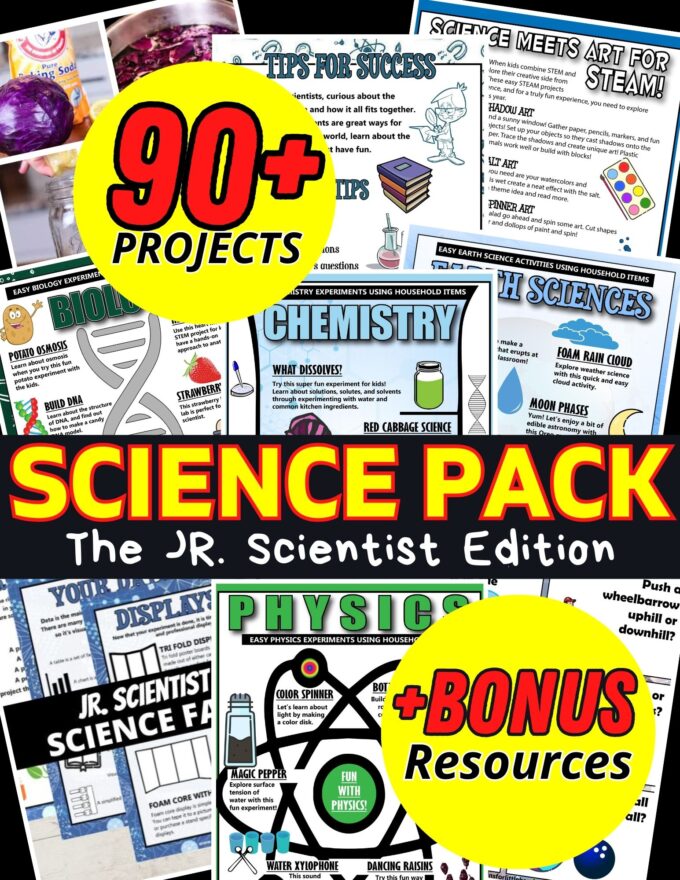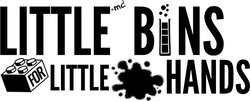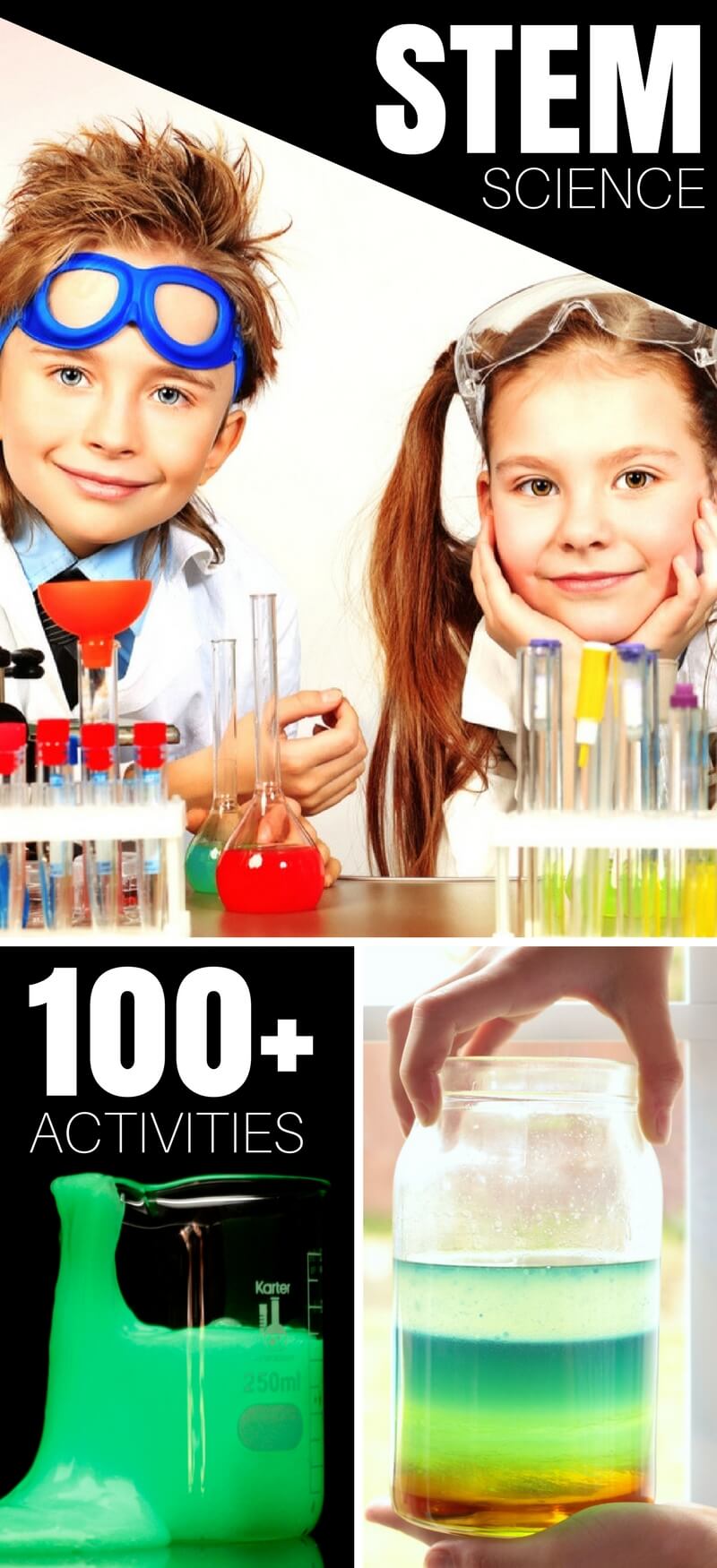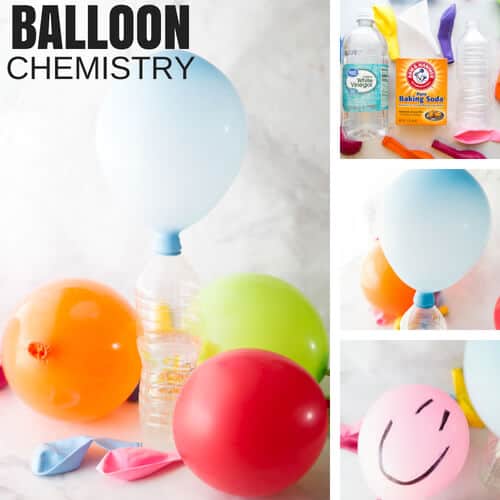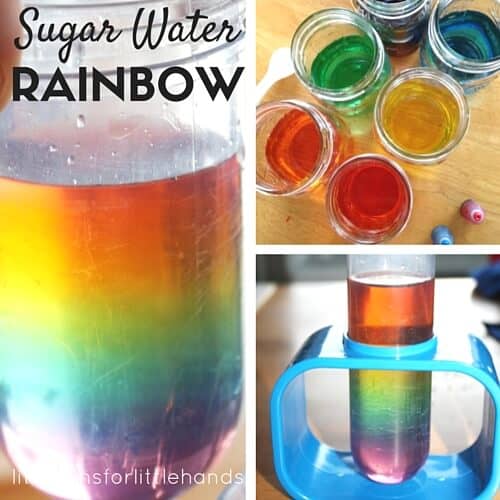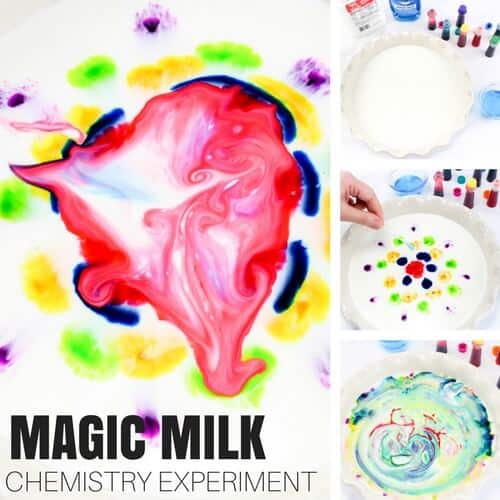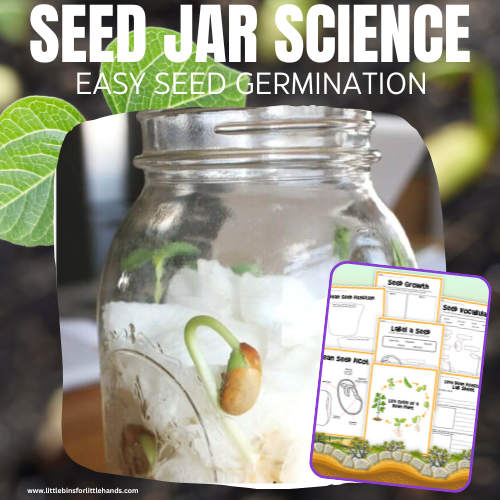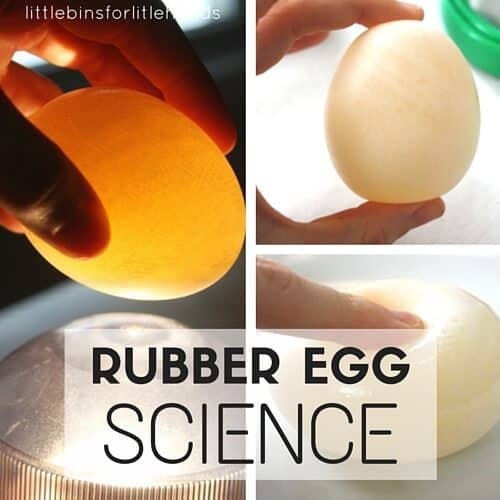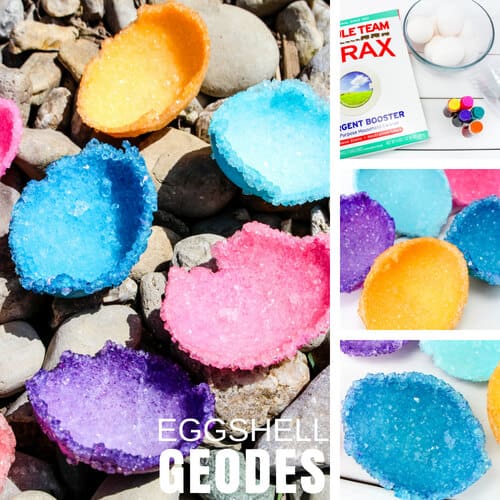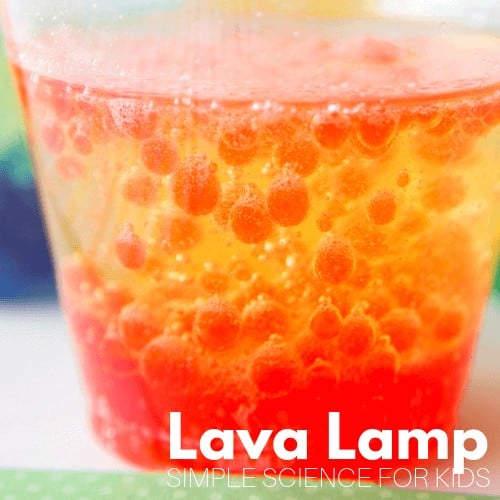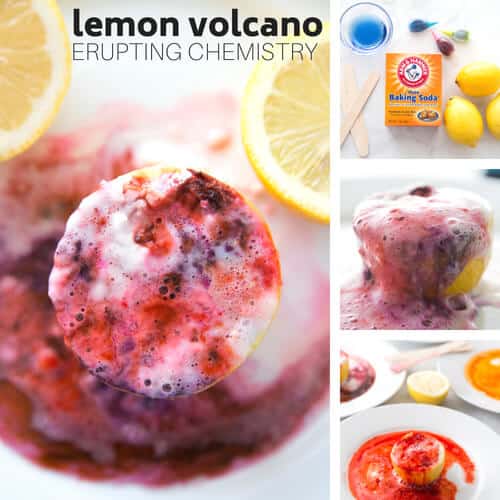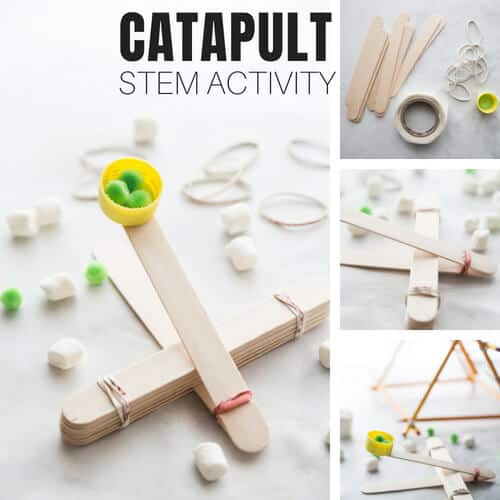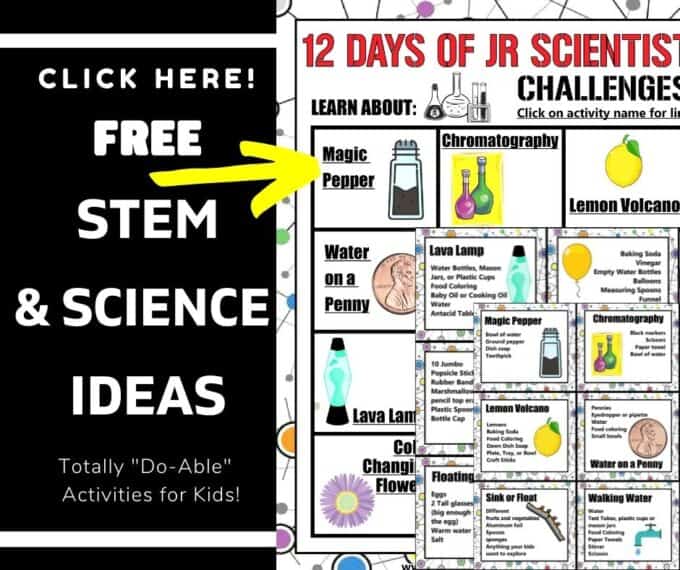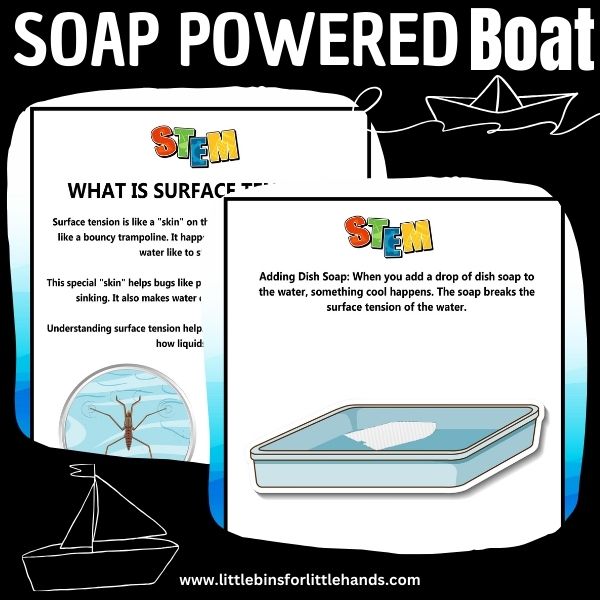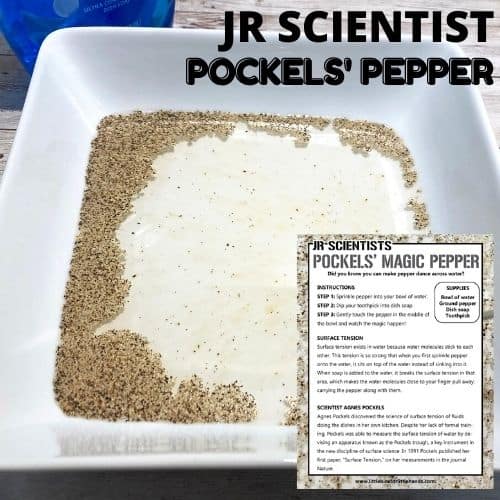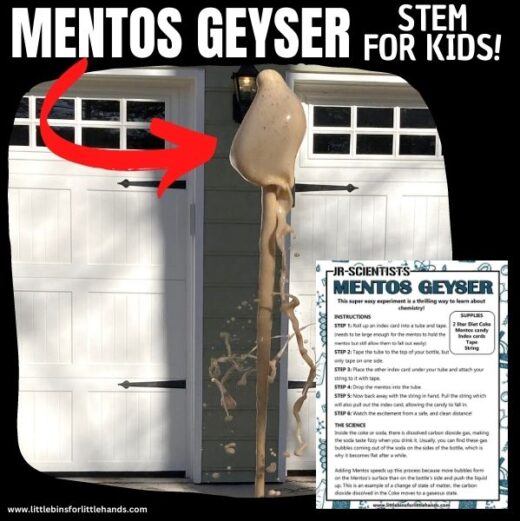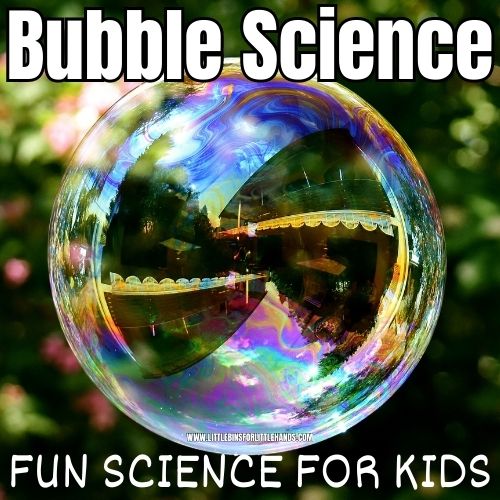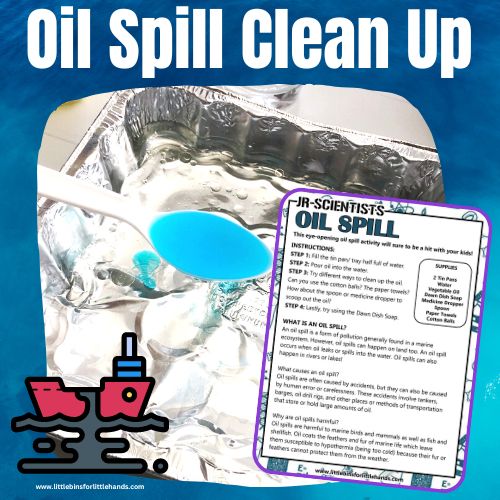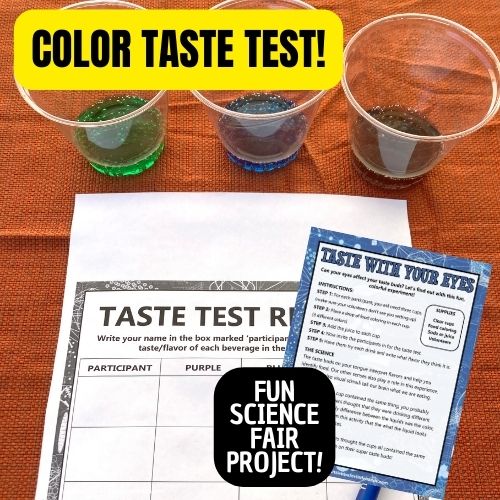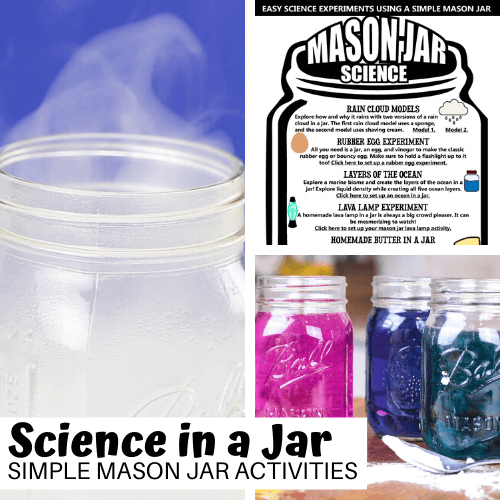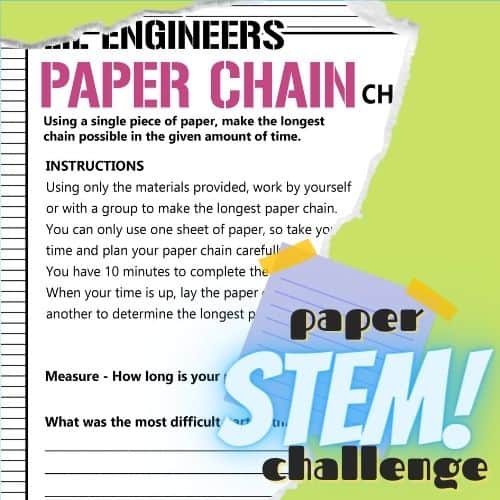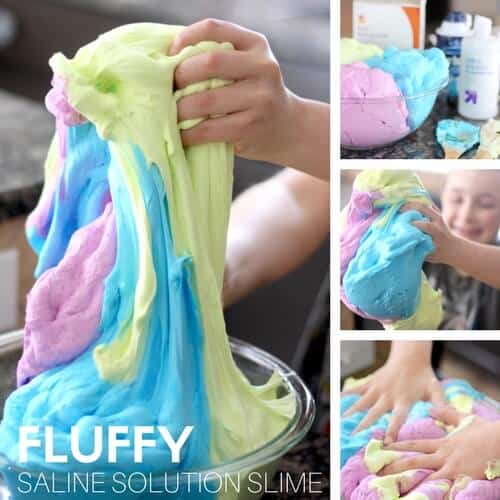Science doesn’t need to be complicated. These easy science experiments below are awesome for kids! They are visually stimulating, hands-on, and sensory-rich, making them fun to do and perfect for teaching simple science concepts at home or in the classroom.

Top 10 Science Experiments
Click on the titles below for the full supplies list and easy step-by-step instructions. Have fun trying these experiments at home or in the classroom, or even use them for your next science fair project!
Baking Soda Balloon Experiment
Can you make a balloon inflate on its own? Grab a few basic kitchen ingredients and test them out! Try amazing chemistry for kids at your fingertips.
Rainbow In A Jar
Enjoy learning about the basics of color mixing up to the density of liquids with this simple water density experiment. There are even more ways to explore rainbows here with walking water, prisms, and more.
Magic Milk
This color-changing magic milk experiment will explode your dish with color. Add dish soap and food coloring to milk for cool chemistry!
Seed Germination Experiment
Not all kids’ science experiments involve chemical reactions. Watch how a seed grows, which provides a window into the amazing field of biology.
Egg Vinegar Experiment
One of our favorite science experiments is a naked egg or rubber egg experiment. Can you make your egg bounce? What happened to the shell?
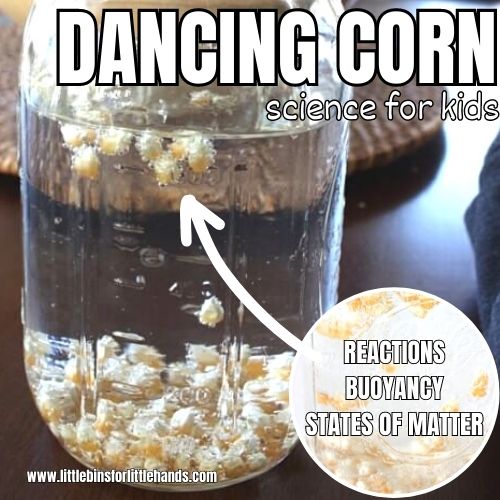
Dancing Corn
Find out how to make corn dance with this easy experiment. Also, check out our dancing raisins and dancing cranberries.
Grow Crystals
Growing borax crystals is easy and a great way to learn about solutions. You could also grow sugar crystals, eggshell geodes, or salt crystals.
Lava Lamp Experiment
It is great for learning about what happens when you mix oil and water. a homemade lava lamp is a cool science experiment kids will want to do repeatedly!
Skittles Experiment
Who doesn’t like doing science with candy? Try this classic Skittles science experiment and explore why the colors don’t mix when added to water.
Lemon Volcano
Watch your kids’ faces light up, and their eyes widen when you test out cool chemistry with a lemon volcano using common household items, baking soda, and vinegar.
Bonus! Popsicle Stick Catapult
Kid tested, STEM approved! Making a popsicle stick catapult is a fantastic way to dive into hands-on physics and engineering.
Grab the handy Top 10 Science Experiments list here!
Free Science Ideas Guide
Grab this free science experiments challenge calendar and have fun with science right away. Use the clickable links to see how to set up each science project.
Get Started With A Science Fair Project
💡Want to turn one of these fun and easy science experiments into a science fair project? Then, you will want to check out these helpful resources.
50 Easy Science Experiments For Kids

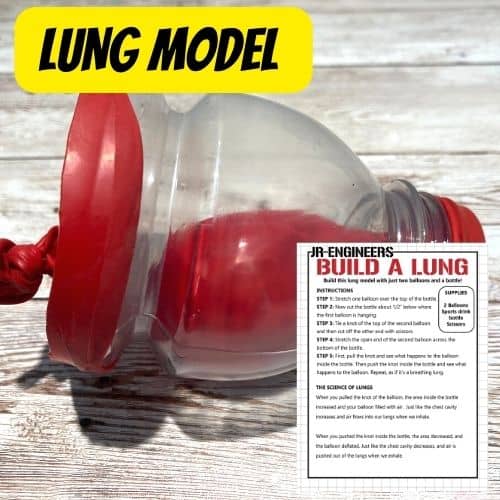
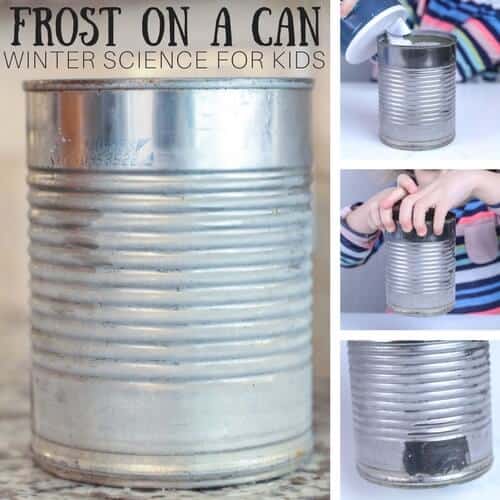
Kids’ Science Experiments By Topic
Are you looking for a specific topic? Check out these additional resources below. Each topic includes easy-to-understand information, everyday examples, and additional hands-on activities and experiments.
- Chemistry Experiments
- Physics Experiments
- Chemical Reaction Experiments
- Candy Experiments
- Plant Experiments
- Kitchen Science
- Water Experiments
- Baking Soda Experiments
- States Of Matter Experiments
- Physical Change Experiments
- Chemical Change Experiments
- Surface Tension Experiments
- Capillary Action Experiments
- Weather Science Projects
- Geology Science Projects
- Space Activities
- Simple Machines
- Static Electricity
- Potential and Kinetic Energy
- Gravity Experiments
Science Experiments By Season
Science Experiments by Age Group
While many experiments can be performed by various age groups, the best science experiments for specific age groups are listed below.
- Science Activities For Toddlers
- Preschool Science Experiments
- Kindergarten Science Experiments
- First Grade Science Projects
- Elementary Science Projects
- Science Projects For 3rd Graders
- Science Experiments For Middle Schoolers
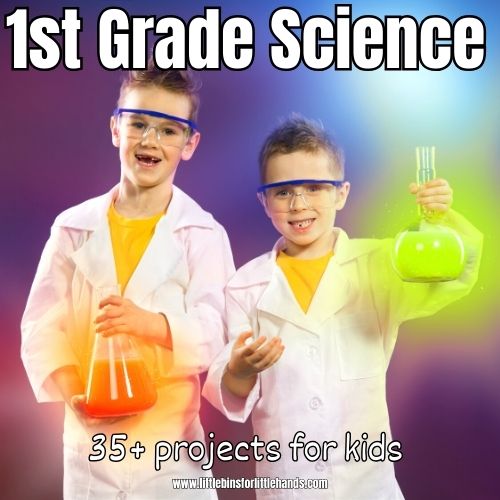
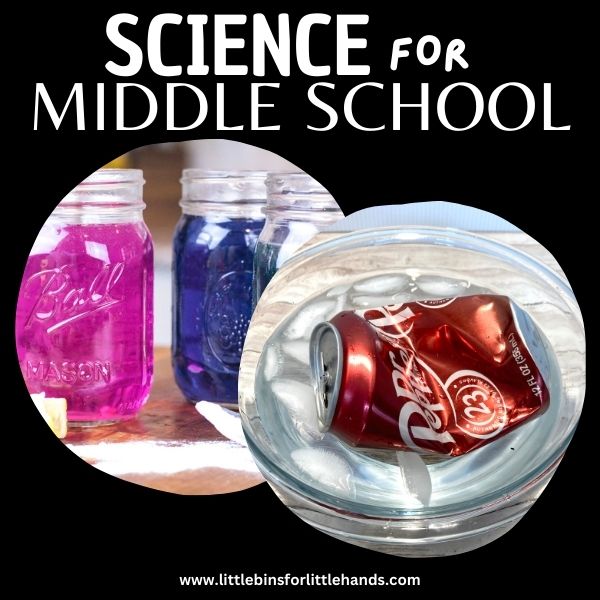
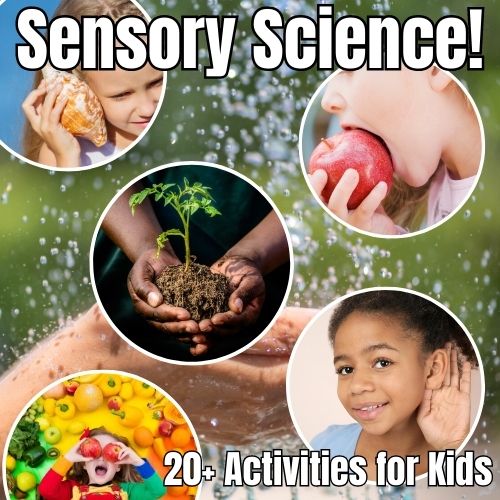
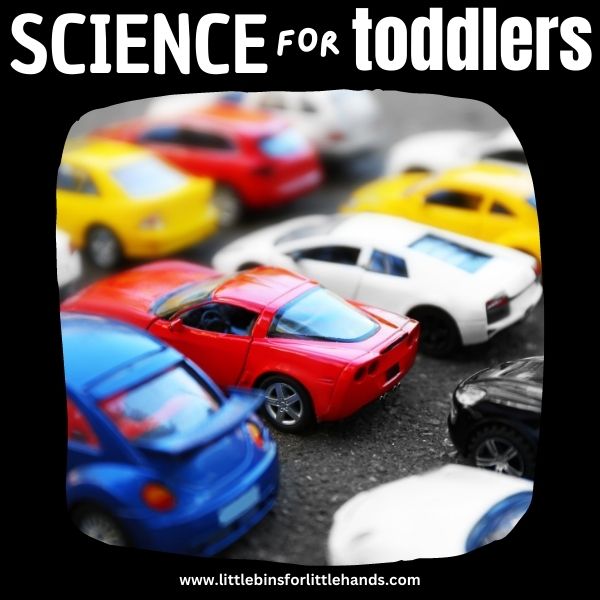

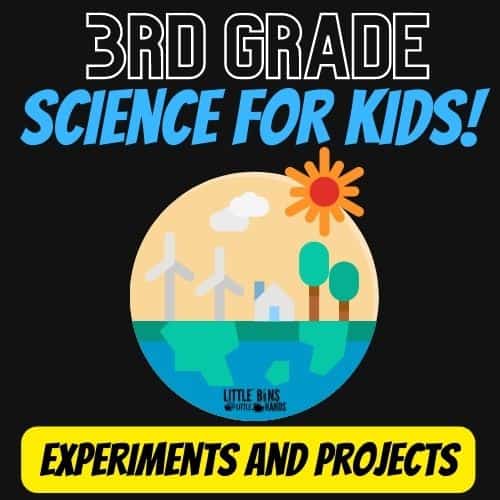
How To Teach Science
Kids are curious and always looking to explore, discover, check out, and experiment to discover why things do what they do, move as they move, or change as they change! My son is now 13, and we started with simple science activities around three years of age with simple baking soda science.
Here are great tips for making science experiments enjoyable at home or in the classroom.
Safety first: Always prioritize safety. Use kid-friendly materials, supervise the experiments, and handle potentially hazardous substances yourself.
Start with simple experiments: Begin with basic experiments (find tons below) that require minimal setup and materials, gradually increasing complexity as kids gain confidence.
Use everyday items: Utilize common household items like vinegar and baking soda, food coloring, or balloons to make the experiments accessible and cost-effective.
Hands-on approach: Encourage kids to actively participate in the experiments rather than just observing. Let them touch, mix, and check out reactions up close.
Make predictions: Ask kids to predict the outcome before starting an experiment. This stimulates critical thinking and introduces the concept of hypothesis and the scientific method.
Record observations: Have a science journal or notebook where kids can record their observations, draw pictures, and write down their thoughts. Learn more about observing in science. We also have many printable science worksheets.
Theme-based experiments: Organize experiments around a theme, such as water, air, magnets, or plants. Even holidays and seasons make fun themes!
Kitchen science: Perform experiments in the kitchen, such as making ice cream using salt and ice or learning about density by layering different liquids.
Create a science lab: Set up a dedicated space for science experiments, and let kids decorate it with science-themed posters and drawings.
Outdoor experiments: Take some experiments outside to explore nature, study bugs, or learn about plants and soil.
DIY science kits: Prepare science experiment kits with labeled containers and ingredients, making it easy for kids to conduct experiments independently. Check out our DIY science list and STEM kits.
Make it a group effort: Group experiments can be more fun, allowing kids to learn together and share their excitement. Most of our science activities are classroom friendly!
Science shows or documentaries: Watch age-appropriate science shows or documentaries to introduce kids to scientific concepts entertainingly. Hello Bill Nye and the Magic Schoolbus! You can also check out National Geographic, the Discovery Channel, and NASA!
Ask open-ended questions: Encourage critical thinking by asking open-ended questions that prompt kids to think deeper about what they are experiencing.
Celebrate successes: Praise kids for their efforts and discoveries, no matter how small, to foster a positive attitude towards science and learning.
What is the Scientific Method for Kids?
The scientific method is a way scientists figure out how things work. First, they ask a question about something they want to know. Then, they research to learn what’s already known about it. After that, they make a prediction called a hypothesis.
Next comes the fun part – they test their hypothesis by doing experiments. They carefully observe what happens during the experiments and write down all the details. Learn more about variables in experiments here.
Once they finish their experiments, they look at the results and decide if their hypothesis is right or wrong. If it’s wrong, they devise a new hypothesis and try again. If it’s right, they share their findings with others. That’s how scientists learn new things and make our world better!
Go ahead and introduce the scientific method and get kids started recording their observations and making conclusions. Read more about the scientific method for kids.
More Helpful Science Resources
Use the resources below to complement the many science activities on our website. You’ll find a fantastic free printable for each one.
Science Vocabulary
It is never too early to introduce some fantastic science words to kids. Get them started with a printable science vocabulary word list. You’re definitely going to want to incorporate these simple science terms into your next science lesson!
What is a Scientist?
Think like a scientist! Act like a scientist! Scientists, like you and me, are also curious about the world around them. Learn about the different types of scientists and what they do to increase their understanding of their specific area of interest. Read What Is A Scientist
Science Books for Kids
Sometimes the best way to introduce science concepts is through a colorfully illustrated book with characters your kids can relate to! Check out this fantastic list of science books that are teacher approved and get ready to spark curiosity and exploration!
Best Science Practices
A new approach to teaching science is called the Best Science Practices. These eight science and engineering practices are less structured and allow for a more free–flowing approach to problem-solving and finding answers to questions. These skills are critical to developing future engineers, inventors, and scientists!
DIY Science Kit
You can easily stock up on the main supplies for dozens of fantastic science experiments to explore chemistry, physics, biology, and earth science with kids in preschool through middle school. See how to make a DIY science kit here and grab the free supplies checklist.
Awesome Science Tools
What tools do most scientists commonly use? Grab this free printable science tools resource to add to your science lab, classroom, or learning space!
Free Science Journal Worksheets
Create a science notebook with these easy-to-use science worksheets to accompany any experiment. Grab your free science process journal pack!
Engineering and STEM Projects For Kids
STEM activities include science, technology, engineering, and mathematics. In addition to our kids’ science experiments, we have lots of fun STEM activities for you to try. Check out these STEM ideas below.
- Building Activities
- Self-Propelling Car Projects
- Engineering Projects For Kids
- What Is Engineering For Kids?
- Lego Build Ideas
- Coding Activities For Kids
- STEM Activities For Toddlers
- STEM Worksheets
- Top 10 STEM Activities For Kids
- STEAM = Art + Scienc
- Easy STEM Activities For Elementary
- Quick STEM Challenges
- Easy STEM Activities With Paper
Printable Science Projects For Kids
If you’re looking to grab all of our printable science projects in one convenient place plus exclusive worksheets and bonuses like a STEAM Project pack, our Science Project Pack is what you need! Over 300+ Pages!
- 90+ classic science activities with journal pages, supply lists, set up and process, and science information. NEW! Activity-specific observation pages!
- Best science practices posters and our original science method process folders for extra alternatives!
- Be a Collector activities pack introduces kids to the world of making collections through the eyes of a scientist. What will they collect first?
- Know the Words Science vocabulary pack includes flashcards, crosswords, and word searches that illuminate keywords in the experiments!
- My science journal writing prompts explore what it means to be a scientist!!
- Bonus STEAM Project Pack: Art meets science with doable projects!
- Bonus Quick Grab Packs for Biology, Earth Science, Chemistry, and Physics
